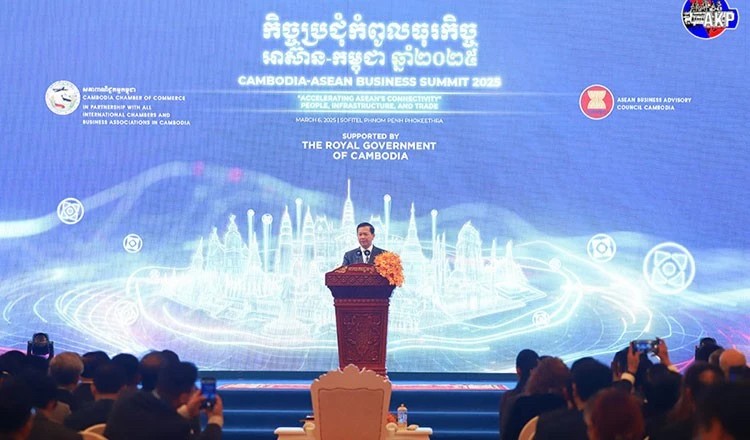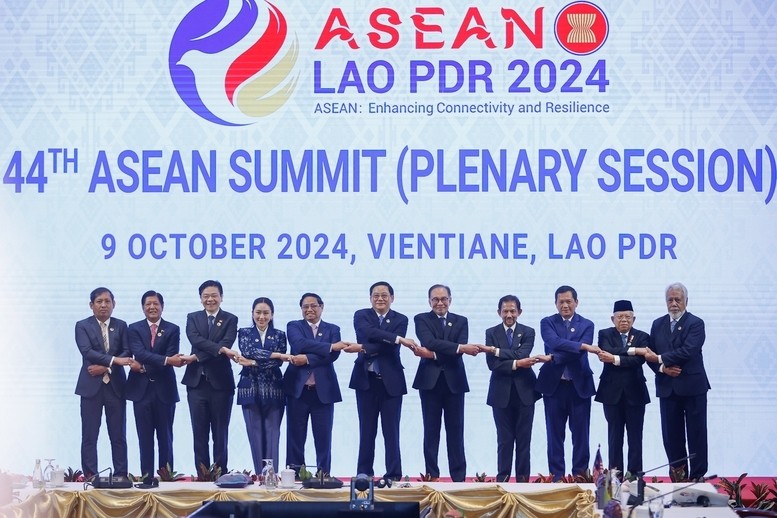World’s largest free trade agreement, covering 2.2 billion people signed by 15 countries
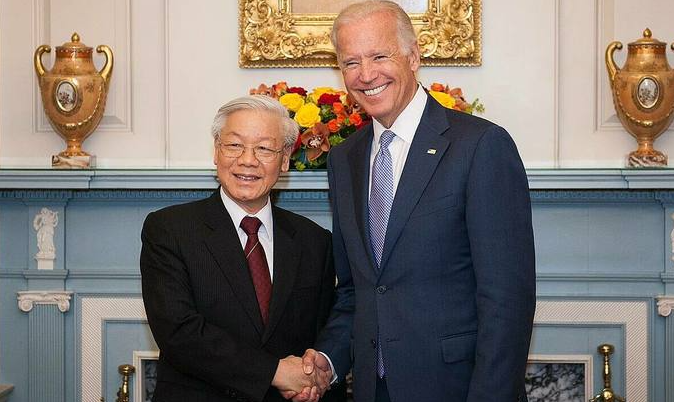 | Biden economic policies likely to advance Vietnam, said analysts |
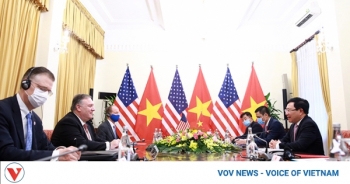 | US supports stronger economic-trade ties with Vietnam |
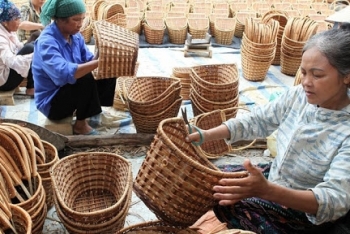 | Ignite initiative to support over 50,000 women entrepreneurs in Vietnam |
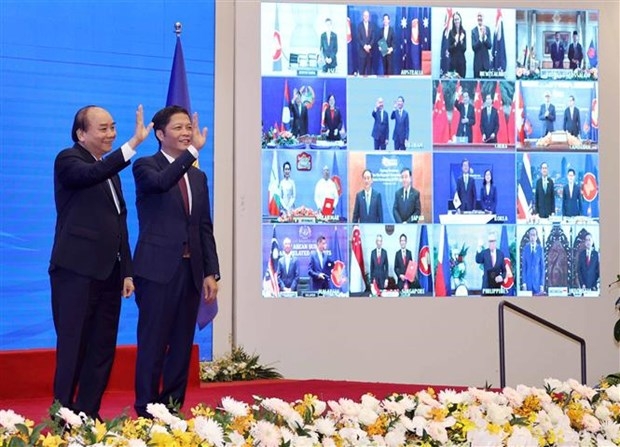 |
| Vietnamese Prime Minister Nguyen Xuan Phuc (L) and Minister of Industry and Trade Tran Tuan Anh wave at other countries' delegates at the signing ceremony for the RCEP agreement (Photo: VNA) |
After eight years of talks, ministers from 15 countries spanning the Asia-Pacific region on November 15 signed the Regional Comprehensive Economic Partnership (RCEP) Agreement via videoconference, following the virtual 4th RCEP Summit hosted by Vietnam, VNA reported.
The trade pact involves 10 ASEAN member nations - Brunei, Cambodia, Indonesia, Laos, Malaysia, Myanmar, the Philippines, Singapore, Thailand, and Vietnam, and the bloc’s partners - Australia, China, Japan, the Republic of Korea (RoK) and New Zealand. Together, they account for around 30 percent of the globe's gross domestic product (GDP) and 30 percent of the world's population.
The agreement is expected to create the world’s largest free trade area and numerous new supply chains, and make significant contributions to regional economic recovery post COVID-19.
Speaking at the signing ceremony which was held virtually, Vietnamese Prime Minister Nguyen Xuan Phuc said the new cooperation framework of the RCEP will contribute to accelerating the building of the ASEAN Economic Community 2025, helping ASEAN become a dynamic, strong partner that works for common prosperity.
The signing of the deal is the pride and great achievement of the ASEAN countries and partners in laying a foundation for a new, comprehensive, long-term cooperation period, bringing benefits to all countries in the region.
The PM expressed his hope that the agreement will soon be ratified by the countries and put into place in the time ahead, contributing to post-pandemic economic recovery and bringing prosperity to people and businesses of all the member countries.
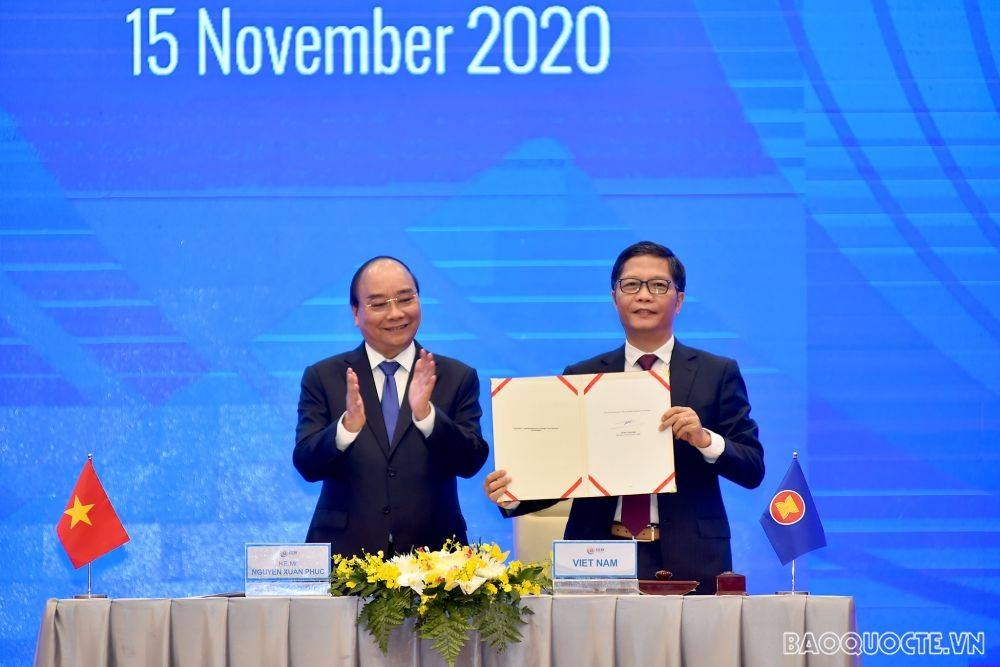 |
| The signing of RCEP agreement in Vietnam. Photo: baoquocte.vn |
The RoK’s Cheong Wa Dae described the RCEP signing as a "core result" of President Moon Jae-in administration's New Southern Policy aimed at improving strategic ties with Southeast Asian nations and also an opportunity for the RoK to become a "pacesetting" economic power.
The same day, addressing the virtual 4th RCEP Summit hosted by Vietnam, Chinese Premier Li Keqiang said that the inking of the RCEP is not only a breakthrough achievement in East Asia cooperation, but also a victory of multilateralism and free trade.
Dr Jeffrey Wilson, a Research Director at the Perth USAsia Centre in Australia, noted that the RCEP will be the most important regional trade agreement ever signed and projected to change the region’s economic and strategic maps.
Meanwhile, Malaysian Prime Minister Muhyiddin Yassin was quoted by the Malaysian News Agency (Bernama) as saying that the RCEP will serve as an important instrument for economic recovery, and will encourage the reopening of markets while ensuring uninterrupted supply chains.
Addressing the 4th RCEP Summit, Muhyiddin said the RCEP agreement is critical for the region’s response in tackling the COVID-19 pandemic, which has not only cost lives but has also battered economies.
Coupled with the challenges to the global trading system due to regional tensions, it is imperative for ASEAN to continue to sustain competitiveness as a region, the PM stressed.
According to the Malaysian leader, Free Trade Agreements (FTAs) are the way forward to help sustain competitiveness through promotion of international trade, encouraging investments and ensuring supply of talent.
As such, the RCEP will be the main vehicle through which regional economic integration within ASEAN and its dialogue partners can be enhanced.
The PM went on to say that it is indeed significant that this partnership has been negotiated based on the different levels of economic development of the 15 participating countries, to ensure a mutually beneficial FTA for all.
He is of the view that this is the touchstone for the future growth and vibrancy of the regional economic collaboration.
Malaysia, together with ASEAN and FTA partners, would want to demonstrate to the world that even with varying levels of economic development, 15 countries can come together to create a trade pact that will be mutually beneficial, not only for the business community, but also for the people’s livelihood, the PM noted.
On another note, Muhyiddin said Malaysia recognises the difficulties India is currently facing, and wishes to express its continuous support and welcome India’s accession to the RCEP in the future./.
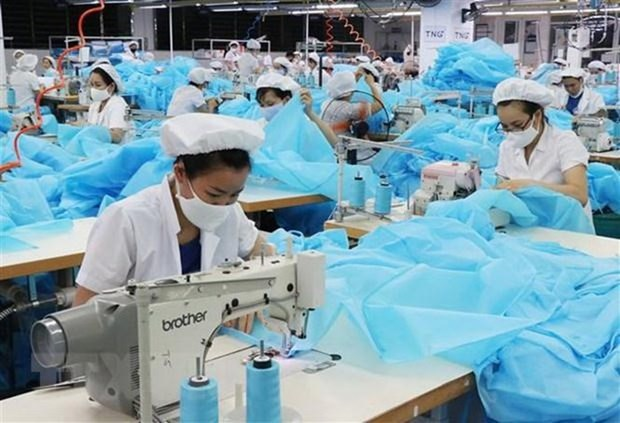 | Singaporean outlet: Vietnam’s economy recovers faster than other countries' in region Singaporean property website propertyguru.com.sg has recently cited a report by Maybank Kim Eng, Malaysia's largest bank which states that both Vietnamese and Singaporean economies show ... |
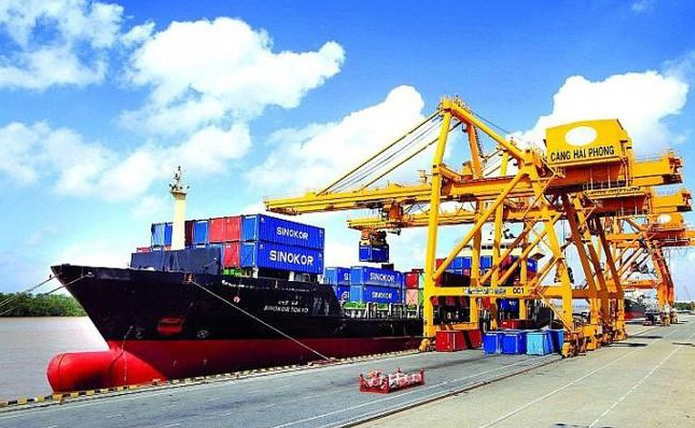 | VN reaches trade surplus record of $18.72 billion in the first 10 months of 2020 Generally, in the first 10 months of 2020, Vietnam's balance of trade is estimated to reach an export surplus record of 18.72 billion USD, according ... |
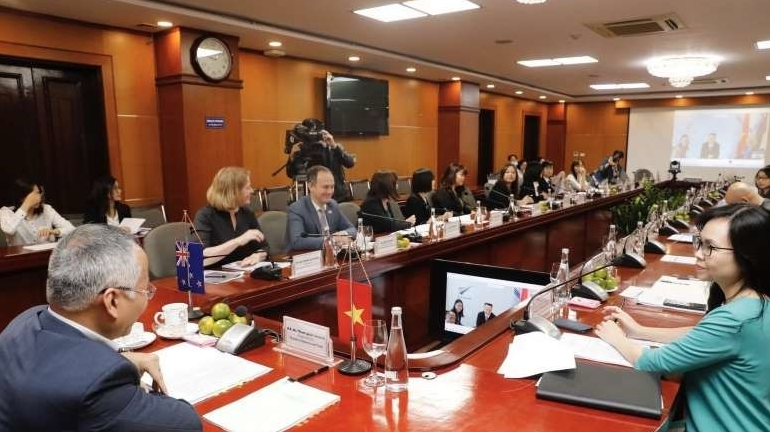 | Vietnam, New Zealand seek ways to foster trade and economic links Vietnamese Deputy Minister of Industry and Trade Tran Quoc Khanh and New Zealand’s Deputy Secretary Trade and Economic Vangelis Vitalis co-hosted the seventh meeting of ... |
Recommended
 World
World
Pakistan NCRC report explores emerging child rights issues
 World
World
"India has right to defend herself against terror," says German Foreign Minister, endorses Op Sindoor
 World
World
‘We stand with India’: Japan, UAE back New Delhi over its global outreach against terror
 World
World
'Action Was Entirely Justifiable': Former US NSA John Bolton Backs India's Right After Pahalgam Attack
 World
World
US, China Conclude Trade Talks with Positive Outcome
 World
World
Nifty, Sensex jumped more than 2% in opening as India-Pakistan tensions ease
 World
World
Easing of US-China Tariffs: Markets React Positively, Experts Remain Cautious
 World
World

